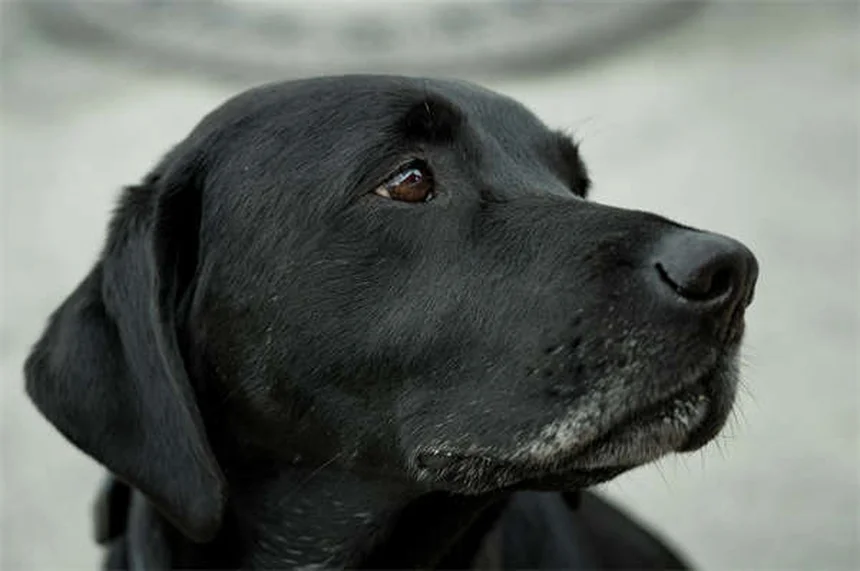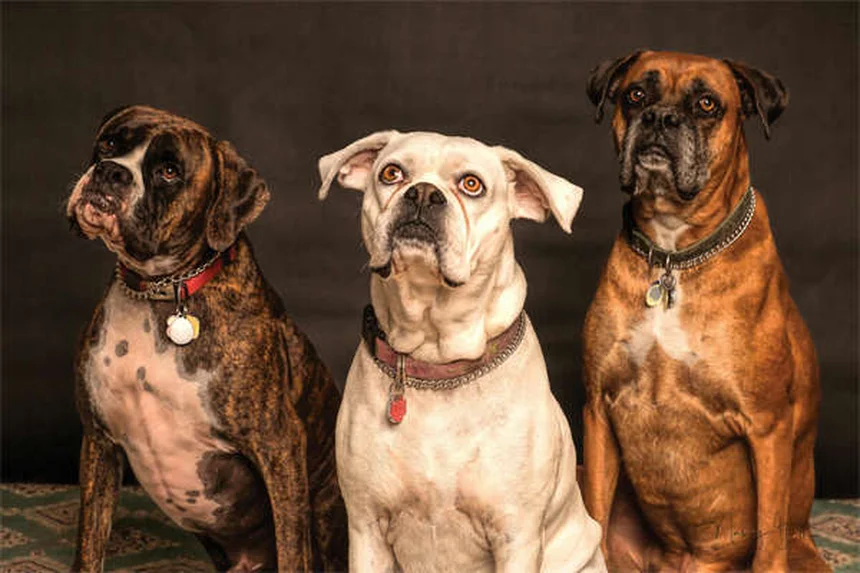Why do horses have manes? The answer is simple: your horse's mane is nature's ultimate multi-tool for pest control and protection! I've worked with horses for years, and let me tell you - that flowing hair isn't just for show. It's actually your horse's first line of defense against mosquitoes, flies, and even predators. Here's the deal: a healthy mane does three crucial jobs - it keeps pests away, protects vital neck areas, and signals good health. And get this - mares actually prefer stallions with thicker manes because it shows they're strong protectors! Whether you're dealing with summer flies or winter chills, understanding your horse's mane will help you keep them happier and healthier.
E.g. :7 Heartbreaking Signs It's Time to Say Goodbye to Your Dog
- 1、The Amazing Purpose of Horse Manes
- 2、Mane Care 101: To Cut or Not to Cut?
- 3、When Manes Go Missing: Causes and Solutions
- 4、Mane Myths and Fun Facts
- 5、The Secret Language of Horse Manes
- 6、Mane Care Through History
- 7、Mane Mysteries Solved
- 8、Mane-Inspired Human Fashion
- 9、Mane Tales from Around the World
- 10、FAQs
The Amazing Purpose of Horse Manes
Nature's Built-in Fly Swatter
You know how annoying flies can be in summer? Well, horses have their own natural solution - their manes! That flowing hair isn't just for looks - it's actually nature's way of keeping pests away from these majestic creatures.
Let me break it down for you: mosquitoes can spread deadly diseases like Eastern Equine Encephalitis, while horse flies transmit Equine Infectious Anemia (that's what the Coggins test checks for). The mane acts like a built-in fly swatter, constantly moving and keeping these pests at bay. And that cute little tuft of hair between their ears? That's called the forelock, and it's specially designed to keep flies out of their eyes. Pretty clever, right?
More Than Just Hair - It's Armor!
Ever wonder why stallions often have thicker manes than mares? Here's the fascinating reason:
When stallions fight (which they do more often than mares), they tend to bite at each other's necks. A thick mane provides natural protection against these attacks, shielding the vital structures underneath. But that's not all - the mane also works like a cozy scarf, keeping the neck warm in winter and dry during rain showers. And get this - some researchers believe a thick mane might make a horse appear larger to potential predators!
| Breed Type | Mane Thickness | Forelock Presence |
|---|---|---|
| Thoroughbreds | Thin | Small |
| Ponies | Very Thick | Prominent |
| Przewalski's Horses | Moderate | None |
Mane Care 101: To Cut or Not to Cut?
 Photos provided by pixabay
Photos provided by pixabay
The Art of Mane Maintenance
Here's a question I get asked all the time: "Should I cut my horse's mane?" The answer might surprise you!
While routine grooming is essential, cutting isn't usually the best solution. Instead, try "pulling" - a technique where you remove small sections of hair to thin and shorten the mane naturally. Start with the longest hairs using a mane comb, and remember: short, quick pulls work best. And here's a pro tip - never do it all at once! Spread it over multiple sessions to keep your horse comfortable.
Now, you might be wondering why some working horses like Cobs have short manes? That's because in certain jobs, a shorter mane is more practical. But for most horses, keeping some length is beneficial for all those natural protections we talked about earlier.
When Braids Become Fashion Statements
Braiding isn't just for beauty pageants - it serves real purposes too!
Different disciplines use specific braiding styles for both function and fashion. Dressage horses often sport button braids that create the illusion of a higher neck crest, while hunter braids keep the mane out of the rider's way. And here's a fun fact - by convention, the mane should lie on the right side of the neck. If your horse's mane doesn't naturally part that way, strategic braiding can help train it.
When Manes Go Missing: Causes and Solutions
Common Culprits of Mane Loss
If you notice your horse losing mane hair, don't panic! Here are the most likely causes:
- Pests: Lice or mites can make them scratch excessively
- Blanket rubs: Poorly fitting gear can irritate the skin
- Allergies: Some horses react to midge fly saliva (called "sweet itch")
- Infections: Fungal issues like ringworm can cause hair loss
The good news? Most of these issues are treatable with proper veterinary care and management changes. And remember - a healthy diet goes a long way in maintaining that gorgeous mane!
 Photos provided by pixabay
Photos provided by pixabay
The Art of Mane Maintenance
Here's something many horse owners overlook: "Can diet really affect my horse's mane?" Absolutely!
A well-balanced diet rich in essential nutrients directly impacts mane health and growth. While severe deficiencies are rare in well-fed horses, ensuring proper nutrition helps maintain that thick, shiny mane that's not just beautiful - but also serves all those important protective functions. Just be cautious with selenium supplements, as too much can actually cause hair loss (though this is extremely rare).
Mane Myths and Fun Facts
What Your Horse's Mane Says About Them
Did you know a horse's mane can actually tell you about their health and even their love life?
Animal behaviorists have found that mares are naturally attracted to stallions with thicker manes. Why? Because that lush mane signals strength and the ability to provide protection. And in the wild, a thick, shiny mane indicates good health and access to quality nutrition. So next time you admire a horse's beautiful mane, remember - it's not just hair, it's a status symbol!
Primitive Horses vs. Domesticated Breeds
Here's an interesting comparison:
Wild horses like the Przewalski's often have thinner manes and no forelock at all, while many domesticated breeds have been selectively bred for thicker manes. This shows how human preferences have shaped horse appearance over centuries of domestication. But regardless of thickness, every mane serves those essential protective functions nature designed them for.
 Photos provided by pixabay
Photos provided by pixabay
The Art of Mane Maintenance
Draper, J., Sly, D., & Muir, S. The Ultimate Book of Horse and Rider. 2014.
White, Susan. American Association of Equine Practitioners. Hair Loss. 2016.
Pavia, A. & Posnikoff, J. Horses for Dummies. 2005.
Featured Image: iStock.com/Binnerstam
The Secret Language of Horse Manes
Mane Movement as Communication
Have you ever noticed how horses flick their manes in specific ways? That's not just random movement - it's actually part of their communication system!
When a horse tosses its mane vigorously, it's often expressing irritation or trying to establish dominance. A slow, gentle sway might indicate relaxation. And here's something fascinating - researchers have observed that horses pay close attention to each other's mane movements, using them as visual signals in herd dynamics. Next time you're at the barn, try watching how horses interact through their mane motions - it's like watching a silent conversation!
Color Patterns and Their Meanings
You might think a horse's mane color is just about genetics, but there's more to the story!
Certain breeds have developed distinctive mane colors for practical reasons. For example, many Fjord horses have that beautiful two-toned mane with dark outer hairs and a light center - this actually helps with temperature regulation in their native cold climate. And get this - some wild horse populations show seasonal color changes in their manes, possibly as camouflage adaptation. Isn't nature amazing?
Mane Care Through History
Ancient Grooming Techniques
Guess what? People have been obsessed with horse manes for thousands of years!
The ancient Scythians, famous horse warriors, used to decorate their horses' manes with gold ornaments. Medieval knights often braided ribbons into their warhorses' manes for identification in battle. And in some Native American cultures, cutting a horse's mane was considered disrespectful to the animal's spirit. Makes you think differently about that simple combing session, doesn't it?
Here's a cool historical fact: The Romans developed special mane oils using olive oil and herbs to keep their chariot horses looking shiny and healthy. Some of these ancient recipes actually worked surprisingly well!
Modern Innovations in Mane Care
Today's horse owners have access to some pretty amazing mane care products:
| Product Type | Ancient Version | Modern Version |
|---|---|---|
| Detangler | Animal fat mixtures | Silicone-based sprays |
| Shampoo | Soapwort plant extract | pH-balanced formulas |
| Conditioner | Olive oil | Protein-enriched creams |
But here's something to consider - "Do we really need all these products?" Often, simple regular brushing and good nutrition work wonders. Sometimes the old ways are still the best!
Mane Mysteries Solved
Why Some Horses Rub Their Manes
If you've ever seen a horse vigorously rubbing its mane against a fence post, you might wonder what's going on.
This behavior can signal several things - from simple itchiness to more serious issues. Some horses do it to relieve tension (like how we might rub our necks when stressed), while others might be reacting to skin irritation. I once knew a mare who only rubbed her mane when the weather was about to change - she was better than the weather channel!
The Genetics Behind Mane Variations
Ever notice how some horse breeds have completely different mane types?
Geneticists have identified specific genes that control mane characteristics. For example, the "forelock absent" trait in Przewalski's horses comes from a dominant gene. And here's something wild - some horses can actually grow manes that reach the ground if never trimmed! The current record holder had a mane over 18 feet long. Can you imagine brushing that every day?
Mane-Inspired Human Fashion
How Horse Manes Influenced Hairstyles
You might not realize it, but horse manes have actually inspired human hairstyles throughout history!
The famous "ponytail" hairstyle? Directly inspired by how we tie up horses' tails. Viking braids? Modeled after the thick braids used to protect horses' manes in battle. Even modern hair extensions owe some credit to the practice of adding false hair to horses' manes for shows. Makes you look at your hairstyle differently, doesn't it?
Equestrian-Inspired Hair Products
Here's something funny - many human hair care products were actually developed for horses first!
That expensive keratin treatment at your salon? Originally created to repair damaged horse manes. Detangling sprays? Perfected on show horses before becoming salon staples. Even the concept of "deep conditioning" came from equestrian grooming practices. Who knew the beauty industry owed so much to horses?
Mane Tales from Around the World
Cultural Beliefs About Horse Manes
Different cultures have fascinating beliefs about horse manes:
In Mongolia, they believe a horse's mane contains its spirit and strength. Some Native American tribes used mane hairs in sacred ceremonies. In Irish folklore, the "water horse" (each uisge) could be identified by its perpetually wet mane. And in Japan, samurai warriors often kept strands of their warhorses' manes as good luck charms. These stories show how deeply horse manes have touched human imagination across centuries!
Modern Scientific Discoveries
Recent studies have revealed even more amazing facts about horse manes:
Researchers found that the structure of mane hairs makes them incredibly resistant to breaking - much stronger than human hair. Some zoologists believe the mane may help distribute scent signals important for horse communication. And here's a mind-blowing fact - analysis of ancient horse DNA shows that mane characteristics were among the first traits humans selectively bred for when domesticating horses. Science keeps showing us there's always more to learn about these magnificent animals!
E.g. :ELI5: What is the purpose of a horse's mane? : r/explainlikeimfive
FAQs
Q: How does a horse's mane protect against pests?
A: Your horse's mane is like a built-in pest control system! The constant movement of those long hairs helps swat away mosquitoes (which can carry deadly diseases like Eastern Equine Encephalitis) and horse flies (that spread Equine Infectious Anemia). That cute forelock between their ears? It's specially designed to keep flies out of their eyes.
From my experience, breeds with thicker manes (like ponies) tend to have fewer pest problems than thin-maned Thoroughbreds. But remember - even with this natural protection, you'll still want to use fly sprays during peak bug season for extra defense.
Q: Can I cut my horse's mane if it gets too thick?
A: Here's what I've learned after years of mane care: cutting isn't usually the best solution. Instead, try "pulling" - a technique where you remove small sections to thin it naturally. Start with the longest hairs using a mane comb, and work in short, quick pulls over multiple sessions.
Pro tip: Some working horses (like polo ponies) do have short manes for practicality, but for most horses, keeping some length maintains those natural protective benefits we talked about. If you're unsure, ask an experienced groomer to show you the proper technique.
Q: Why does my horse keep rubbing its mane off?
A: Oh boy, I've dealt with this frustrating issue many times! The most common culprits are:
1. Pests (lice or mites making them itch)
2. Blanket rubs from poorly fitting gear
3. Allergies (especially to midge fly saliva - called "sweet itch")
4. Infections like ringworm
The good news? Most causes are treatable. Start by checking for pests, improving blanket fit, and consulting your vet about possible allergies or infections. A healthy diet also helps mane regrowth - I've seen amazing turnarounds with proper nutrition!
Q: Do braids serve any purpose besides looking pretty?
A: You bet they do! Different braiding styles actually serve specific functions:
- Hunter braids keep the mane out of the rider's way
- Button braids (common in dressage) create the illusion of a higher neck
- Running braids help manage long manes during work
- Braiding can even train a mane to lie on the "correct" right side
From my show days, I learned that proper braiding isn't just about looks - it's about function too. Just remember to keep braids loose enough to allow some natural pest-swishing movement!
Q: How can I tell if my horse's mane is healthy?
A: Here's my quick health checklist for manes:
1. Thickness - Should be appropriate for the breed (ponies=thick, Thoroughbreds=thinner)
2. Shine - Healthy manes have natural luster
3. Growth - Shouldn't be breaking or falling out excessively
4. Skin condition - No redness, scabs, or irritation underneath
Remember, a horse's mane is like a health barometer. If you notice sudden changes, it might signal nutritional issues or health problems. When in doubt, consult your vet - I've caught several health issues early just by monitoring mane condition!

